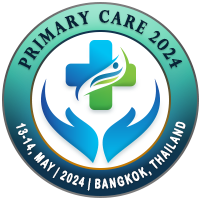
Chansovannara Soputhy
National Institute of Public Health, CambodiaTitle: Factors Influencing Inappropriate Antibiotic Use Among Children Under the Age of 5 in Cambodia: Analysis of CDHS 2014
Abstract
Introduction: Inappropriate antibiotic use in children under the age of five (U5) is a global public health concern. Unnecessary antibiotics have been prescribed to treat common illnesses in children, particularly acute respiratory infections and diarrhea. The study was conducted to identify factors influencing inappropriate antibiotic use among children under five years old who had a minor illness, including non-pneumonia (cough or cold) and non-bloody diarrhea.
Method: This study analyzed Cambodia Demographic Health Survey (CDHS) in 2014 using the children dataset. Multivariable logistic regression analysis was performed to evaluate factors independently associated with the inappropriate use of antibiotics in U5 children.
Results: The study included 7,044, of which the proportion of non-pneumonia and non-bloody diarrhea were 12.8% and 11.3%, respectively. Most of those with minor illnesses sought medical care at private clinics, followed by pharmacies and public health facilities. The prevalence of inappropriate antibiotic use in non-pneumonia children U5 was high (73.9%), while its determinants consisted of rural residence (AOR = 2.2, 95% CI = 1.2–3.9, p<0.01), unemployed mother (AOR = 2.4, 95% CI = 1.1–5.4, p=0.034), the use of public health facilities (AOR = 2.7, 95% CI = 1.2–6.3, p=0.018) and private health facilities (AOR = 2.5, 95% CI = 1.4–4.5, p<0.01).
However, there was less than 5.0% inappropriate use of antibiotics among U5 children with non-bloody diarrhea. Only households in the middle wealth index were independently associated with lower use of inappropriate antibiotics for non-bloody diarrhea among U5 children (AOR = 0.05, 95% CI = 0.01–0.5; p<0.01).
Conclusion: The study highlighted the high prevalence of inappropriate use of antibiotics to treat non-pneumonia and the relatively low treatment of non-bloody diarrhea children U5. Therefore, antibiotic regulation should be enforced more, particularly for treating non-pneumonia, and effective antibiotic stewardship should be encouraged.
Biography
Chansovannara SOPUTHY is currently a surveillance coordinator who has worked at the National Institute of Public Health since 2022, focusing on respiratory disease surveillance. His background is in nursing, and he holds a master's degree in Health and Community Development from the National Institute of Public Health in Cambodia. He got an International Tropical Medicine (ITM) scholarship to complete his master's degree. Throughout the years, he has worked on various quantitative and qualitative research projects in clinical, one health, and community settings. From 2022 to 2023, he received three grant awards from Cambodia One Health University Network, US Alumni, and Australian Awards. Currently, he is carrying out research to evaluate senior medical students' knowledge, attitude, and perception concerning antibiotic use and resistance in Cambodia. He is interested in AMR, respiratory diseases, surveillance, one health, outbreak investigation, and bioethics.

